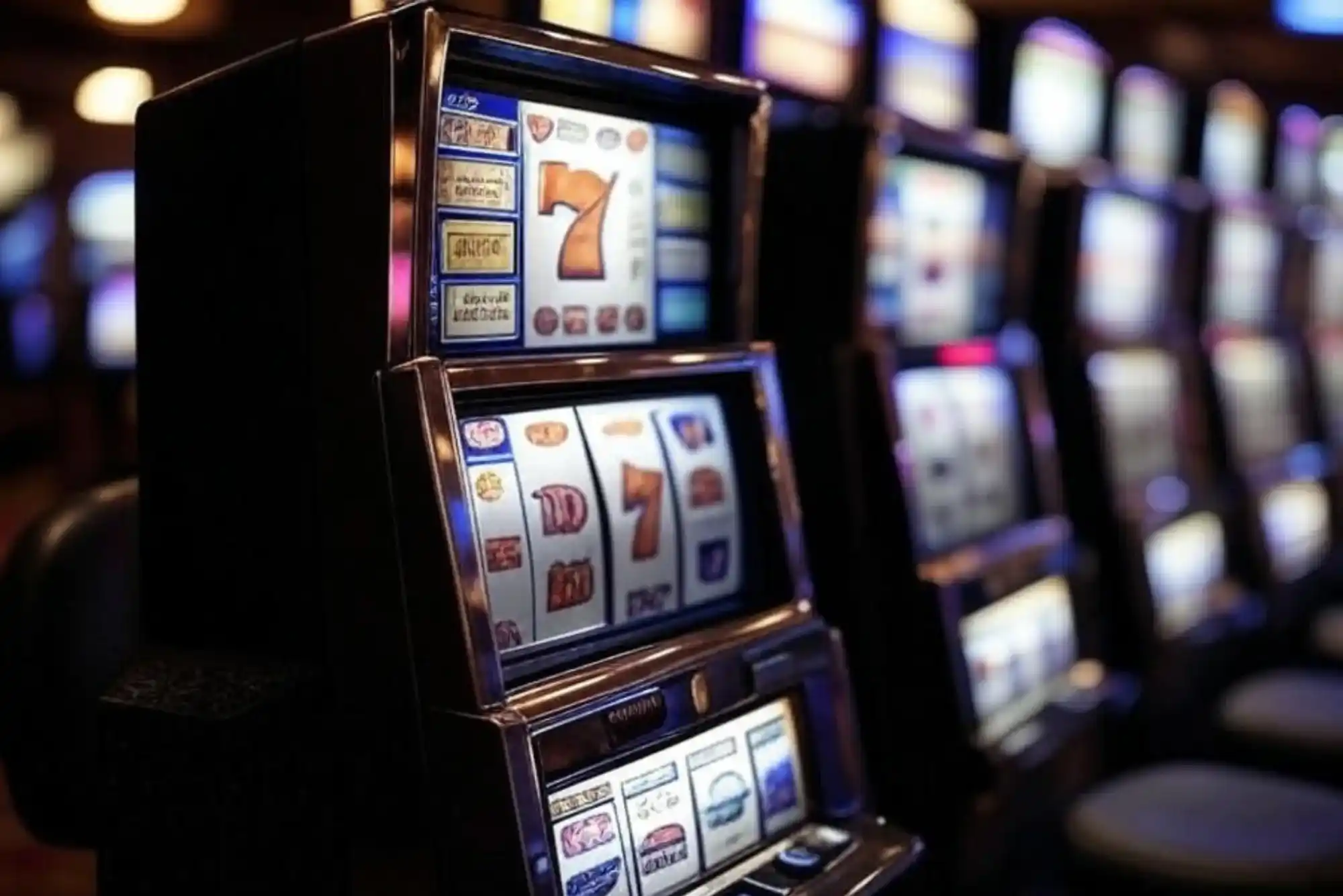Slot machines have evolved drastically since their humble beginnings, and with the rise of online gaming—especially in crypto casinos UK—the mechanics behind slots have become increasingly complex and intriguing. One of the most talked-about features today is the slot multiplier stack. But many players, both new and experienced, often ask: Are slot multiplier stacks random or fixed? In this deep dive, we’ll explore the mechanics behind this feature, dispel some common myths, and offer real-world insights to help you better understand your odds.
Understanding Slot Multiplier Stacks
To understand whether multiplier stacks are random or fixed, it’s important to first grasp what they are. In simple terms, multiplier stacks refer to the ability of a slot machine to increase your winnings based on a multiplier that’s either applied to a single win, a series of wins, or a specific combination of symbols. These can appear in various forms—on reels, during free spins, or as part of a cascading win feature.
Some multipliers are clearly labeled: x2, x5, x10, etc., and are visually triggered on the reels. Others are part of a game mechanic where multipliers accumulate over time, like in “Megaways” slots or bonus rounds that reward increasing returns the longer you last in the feature.
Now the real question arises—how do these multipliers work behind the scenes? Are you being served randomness with each spin, or is there a fixed design dictating what comes next?
Random Number Generators: The Core of Slot Mechanics
Almost all reputable online slot games use Random Number Generators (RNGs). These are sophisticated algorithms that ensure every spin’s outcome is independent and unpredictable. This means that each spin is unique and not influenced by previous results. RNGs are regularly audited by independent gaming authorities to ensure fairness, especially in regulated regions like the UK.
So where do multiplier stacks come in? Here’s the catch: while RNGs determine the base outcome of a spin, including which symbols land and where, the appearance of multipliers is often integrated into the RNG logic itself. This means multipliers—just like other bonus features—are subject to random chance unless stated otherwise by the game provider.
When Multipliers Might Be Fixed
In some games, particularly older slots or classic styles, multipliers may be fixed in the sense that they are tied to specific symbol combinations. For instance, landing three BAR symbols might always yield a 3x payout, which is part of the game’s paytable.
However, in more modern games—especially in the crypto casinos UK space—software providers have leaned into variability and randomness to heighten excitement. Multipliers often come as part of mystery bonuses, wild reels, or “Avalanche” mechanics, where symbols fall and multipliers increase progressively. These systems are inherently random.
That said, not all multiplier systems are purely random. Some games use progressive multipliers, where multipliers grow over time or through a specific feature like free spins. These aren’t random per se—they’re dependent on a fixed sequence of play—but how and when you trigger them remains random.
The Role of Crypto Casinos in Multiplier Mechanics
Crypto casinos, particularly in the UK, have surged in popularity due to their anonymity, lightning-fast transactions, and borderless gameplay. But they also bring innovation in game design. Many crypto casinos UK platforms offer exclusive slots built with blockchain technology. These games, known as provably fair games, go one step beyond standard RNG.
In provably fair slots, you can verify the fairness of each spin using cryptographic hashes. While this doesn’t directly tell you if a multiplier will appear, it ensures that the outcome—including the presence or absence of a multiplier—is genuinely random and hasn’t been tampered with.
So if you’re wondering whether the multiplier stack in your crypto slot is legit, playing on a provably fair crypto casino is one of the most transparent options available. Many of these casinos even publish Return to Player (RTP) rates and game logic openly, letting you dive deeper into the math.
RTP, Volatility, and How They Influence Multipliers
Another important factor in understanding how multiplier stacks operate is knowing the RTP (Return to Player) and volatility of the slot. RTP represents the average percentage of wagered money a slot is designed to pay back to players over time. High RTP games may give you smaller wins more frequently, while lower RTP games might offer bigger wins—but less often.
Volatility, or variance, refers to the risk level of a slot. High volatility slots usually include larger multiplier stacks and rarer bonus features. In these games, multipliers can shoot as high as x100 or more, but they don’t appear frequently. In contrast, low volatility slots may offer fixed or modest multipliers that appear more regularly.
These design choices give the illusion of randomness or fixed behavior but are all part of a carefully calculated balance of risk and reward by game developers.
Case Study: Sweet Bonanza and Multiplier Drops
Take a popular slot like Sweet Bonanza, available in many crypto casinos in the UK. This game features multipliers that can randomly appear during the free spins round, with values ranging from x2 to x100. These are presented as colorful bombs that explode to boost your total win.
From personal experience, I’ve played multiple sessions on Sweet Bonanza, and I’ve seen x100 multipliers drop when I’m betting low, while sometimes, with higher bets, I only get x2 or x3 multipliers. While it’s easy to think the game is “rigged” when that happens, it’s just how variance and RNG manifest in real-time.
This is also a great example of where randomness rules—there’s no guaranteed way to trigger high multipliers. The thrill lies in the unpredictability.
Can You Influence or Predict Multiplier Behavior?
Short answer: not really. No strategy, timing, or bet size guarantees a multiplier stack in any online slot. Slot machines—be they in traditional casinos or crypto platforms—are games of chance.
However, smart players can optimize their experience by choosing slots with favorable RTP and volatility that suit their risk tolerance. Reading the slot’s paytable, understanding its bonus mechanics, and playing demo versions before wagering real money can also help set realistic expectations.
Moreover, choosing licensed and regulated crypto casinos UK ensures that the slots you’re playing are fair, and the multipliers are being deployed according to tested and certified game logic.
Transparency in Crypto Gambling: A New Era?
One of the most exciting developments in crypto casinos UK is the level of transparency being introduced through blockchain tech. Some platforms allow players to inspect the RNG seed and how it generated each spin. This is a game-changer in terms of trust and fairness.
While you can’t control when or if a multiplier stack will land, knowing that the system is verifiable can give players peace of mind. It also sets crypto casinos apart from some offshore or unregulated platforms that have murky fairness policies.
Conclusion: Random or Fixed?
So, are slot multiplier stacks random or fixed? The most accurate answer is: It depends on the game design, but in most modern slots—especially in crypto casinos—the multiplier stacks are random or at least triggered by random events.
Certain multipliers might be tied to specific symbols or features, which are part of a fixed payout structure, but the occurrence of these features is governed by RNGs, ensuring unpredictability.
As a player, your best move is to understand the game you’re playing. Dive into the mechanics, test the demo modes, and always play at reputable, regulated platforms—particularly those offering crypto casinos UK options with provably fair systems.
The thrill of the multiplier lies in its surprise. That sudden pop of a x50 or x100 bomb turning a modest win into a massive payout—that’s what keeps us spinning. But now, at least, you know what’s really going on behind the scenes.
Always gamble responsibly. Slot games are designed for entertainment, and no outcome is ever guaranteed—even when chasing that elusive multiplier stack.





